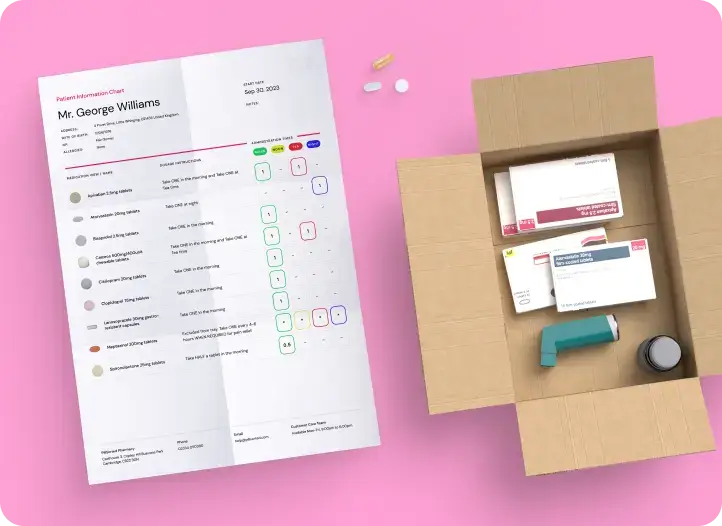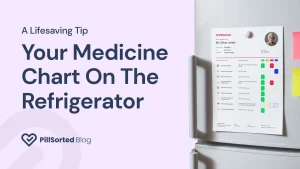What are the Stages of Kidney Disease?

Chronic Kidney Disease (CKD) is now one of the most prominent causes of death and suffering in this century. It is a silent but serious condition that is often asymptomatic in its early stages. Which means that by the time many people know they have CKD, it has reached advanced stages where it can significantly impact quality of life and is harder to manage.
That’s why identifying any symptoms early and understanding the 5 stages of kidney disease is crucial. Especially if you have diabetes, high blood pressure, or a family history of kidney disease. In this article, we’ll explain the various stages of kidney disease to help you know what symptoms to look for.
In this post:
- The stages of Kidney Disease
- 5 stages of CKD based on eGFR
- 3 stages of CKD based on ACR
- Kidney Disease Dos & Don’ts
- Main takeaways
The Stages of Kidney Disease
To determine the stage of kidney disease, doctors will check various factors such as:
- Blood pressure
- Estimated Glomerular Filtration Rate (eGFR)
- Albumin-creatinine (ACR) ratio in your urine
5 stages of CKD based on eGFR
Your doctor will calculate your eGFR using your creatinine levels, plus your age, gender, hight and weight. This tells your doctor how well your kidneys are filtering waste products. A healthy kidney should be able to filter 90-120ml/min. Any lower than that and you may have CKD.
Here are the 5 stages of CKD based on your eGFR:
Stage 1 (G1): Kidney Damage & Normal or high eGFR (90ml/min. +)
Kidney damage may be present but because your kidneys are still functioning normally you might not know it.
Symptoms: Often none. But maybe high blood pressure, swelling in your legs, UTIs, abnormal urine test
What you can do about it: See your doctor regularly and ask about your current eGFR. Make healthy lifestyle modifications such as maintaining a healthy weight, controlling blood pressure, and managing diabetes. Obesity, smoking, binge alcohol drinking, uncontrolled diabetes, and hypertension tend to worsen CKD.
Stage 2 (G2): Other Signs of Kidney Damage & Slightly Reduced eGFR (60-89ml/min.)
As kidney function declines slightly, symptoms may become more noticeable. At this stage, it’s important to work closely with healthcare providers to monitor kidney function and manage underlying conditions.
Symptoms: High blood pressure, fatigue, swelling in the legs, ankles or around the eyes, changes in urination frequency or color, UTIs, abnormal urine test and mild back pain are common signs.
What you can do about it: See your doctor regularly and ask about your current eGFR. Make dietary changes, including reducing sodium and protein intake to lessen the workload on the kidneys. Take medications as prescribed to control blood pressure and blood sugar levels.
Stage 3 (G3): Moderately Decreased eGFR (45-59ml/min.)
As kidney function significantly reduces, your symptoms may become more pronounced. Managing complications such as anemia, bone disease, and electrolyte imbalances becomes crucial.
Symptoms: Fatigue, persistent swelling in hands and feet, difficulty concentrating, itching, muscle cramping, back pain, and changes in urination and appetite are common.
What you can do about it: See your healthcare providers to monitor your eGFR and other lab results and symptoms. This is also a good stage to speak with both a renal dietitian and a kidney doctor (nephrologist). Follow dietary restrictions, including limiting phosphorus and potassium intake. Take medications as prescribed such as erythropoietin-stimulating agents for anemia or phosphate binders.
Stage 4 (G4): Severely Decreased eGFR (15-29ml/min.)
Your kidney function is significantly impaired and your symptoms may become severe.
Symptoms: Anaemia, fatigue, shortness of breath, nausea, vomiting, severe swelling, decreased appetite, bone disease, abnormal levels of phosphorus, calcium and vitamins D, and confusion may occur.
What you can do about it: Continue to see your healthcare providers. They will let you know if you need dialysis or a kidney transplant to remove waste products and excess fluid from the blood and maintain life-sustaining functions.
Stage 5 (G5): End-Stage Kidney Disease (ESKD) & eGFR (15ml/min.-)
End-stage kidney disease is the most advanced stage, where the kidneys have failed or are close to failure. Without dialysis or a kidney transplant, life expectancy is greatly reduced.
Symptoms: Urine in the blood (Uremia), fatigue, shortness of breath, nausea, vomiting, severe swelling, and confusion may occur.
What you can do about it: To perform the functions of the kidneys artificially, you may need in-home or in-centre dialysis. However, a kidney transplant remains the best treatment option, offering the possibility of a life free from dialysis and to improve overall health and well-being.
3 stages of CDK based on ACR
The Albumin-Creatine ratio (ACR) checks if you have albumin, a type of protein, leaking into the urine, an important sign of kidney damage. The higher the ‘A stage’ the more severe the kidney disease.
Here are the 3 stages of CDK based on your ACR:
- Stage 1 (A1): normal to mild increase ACR (3mg/mmol. or -)
- Stage 2 (A2): moderately increased ACR (3-30mg/mmol.)
- Stage 3 (A3): moderately increased ACR (30mg/mmol. +)
Kidney Disease Dos & Don’ts
| Do | Don’t |
|---|---|
| Make sure you understand the root cause of your condition (such as diabetes or high blood pressure) | Don’t ignore your symptoms such as fatigue, swelling, and changes in urination |
| Prioritise regular check-ups and screenings | Don’t neglect your medication regimen or your routine checkups |
| Maintain a health lifestyle eating a balanced diet | Don’t consume excessive amounts of potassium, phosphorus and sodium |
| Get help from healthcare professionals, nutritionists and support groups | Don’t smoke or use tobacco products |
| Get regular physical activity to control blood pressure and manage your weight | Don’t consume alcohol |
Main takeaways
- Early detection is crucial for managing chronic kidney disease
- Chronic kidney disease (CKD) often progresses silently, without noticeable symptoms in its early stages
- Estimated Glomerular Filtration Rate (eGFR) is used to help know which stage of kidney disease you are in.
- Obesity, smoking, binge alcohol drinking, uncontrolled diabetes, and hypertension tend to worsen CKD.
- You have options to slow CKD and improve your overall health and wellbeing at every stage.
References
Kovesdy, C. (2022). Epidemiology of chronic kidney disease: an update 2022
Gounden, V. et. al. (2023). Renal Function Tests
Alkhatib, L. et. al. (2023). Lifestyle Modifications and Nutritional and Therapeutic Interventions in Delaying the Progression of Chronic Kidney Disease: A Review
PillSorted
PillSorted is a full service pharmacy that delivers trusted pharmacy products, over-the counter medications, and the prescriptions your doctor recommends, directly to your door. Your PillSorted pharmacist is happy to answer your questions about weight loss and potential treatment options at 0333 4050380 or help@pillsorted.com.

All third-party trademarks (including logos and icons) referenced by PillSorted remain the property of their respective owners. Unless specifically identified as such, PillSorted’s use of third party trademarks does not indicate or imply any relationship, sponsorship or endorsement between PillSorted and the owners of these trademarks.























